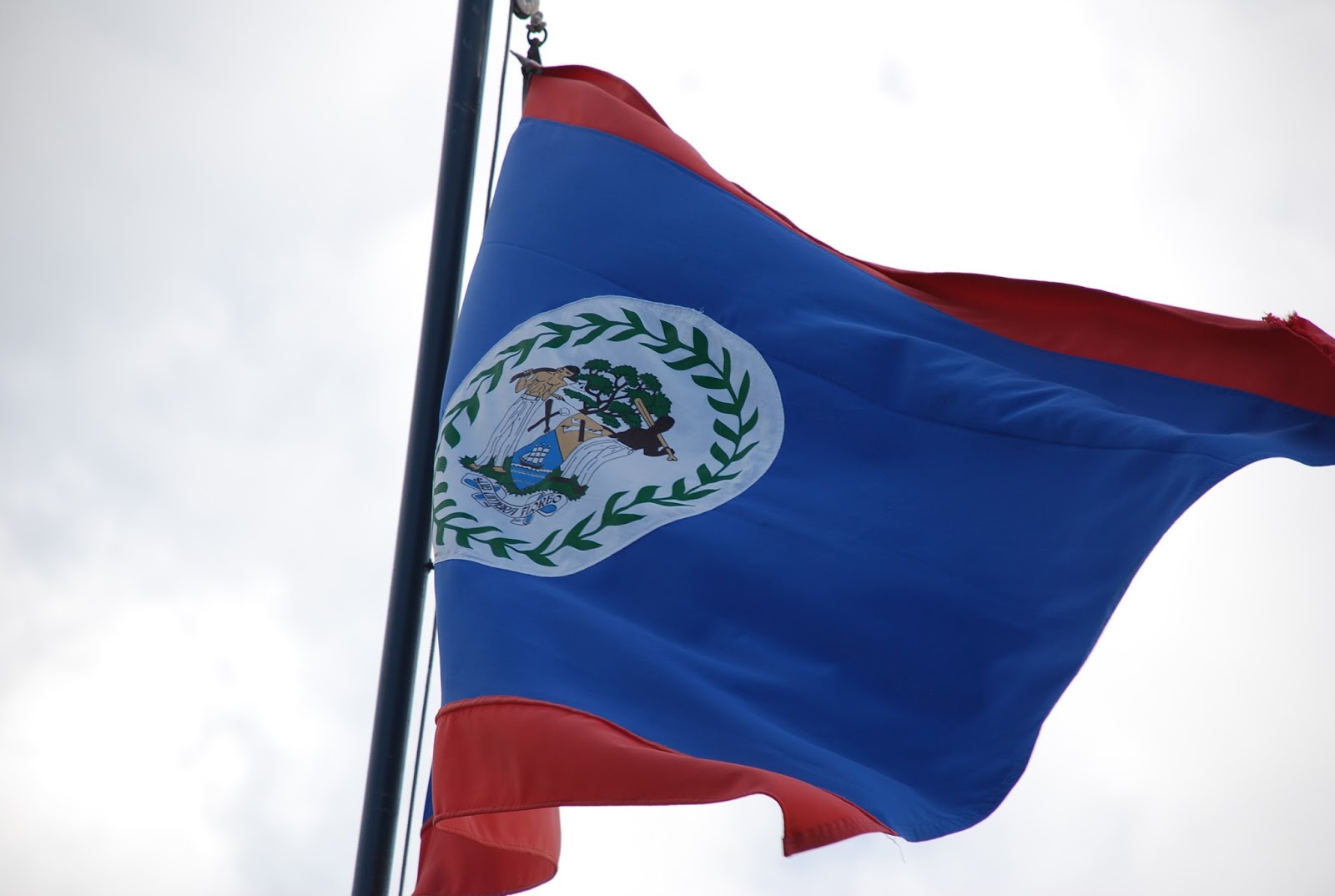Official language belize – English, the official language of Belize, holds a prominent place in the nation’s history, culture, and development. This comprehensive guide delves into the historical, legal, socioeconomic, and cultural implications of English in Belize, offering a nuanced understanding of its role in shaping the country’s identity and trajectory.
History and Evolution of Belize’s Official Language

The adoption of English as the official language of Belize is a result of the country’s colonial past and its close ties to the United Kingdom.
Belize was originally a British colony known as British Honduras. During the colonial period, English was the language of administration, education, and commerce. After Belize gained independence in 1981, English remained the official language.
British Colonialism and the Adoption of English
British colonialism played a significant role in the adoption of English as the official language of Belize. The British established schools and other institutions that used English as the medium of instruction.
Over time, English became the dominant language in Belizean society. It was used in government, business, and education. English also became the language of Belizean literature and media.
Legal Status and Usage of English in Belize
English is the official language of Belize, a status established by the Belize Constitution. The Constitution, the supreme law of the land, designates English as the language of government, education, and the legal system.
Legislation and Official Documents
The use of English in Belize is supported by various laws and regulations. The Official Language Act, enacted in 1981, legally establishes English as the official language. Other relevant legislation includes the Education Act, which mandates the use of English as the medium of instruction in schools, and the Courts Act, which requires court proceedings to be conducted in English.
Government and Education
English is the primary language used in government administration, including parliamentary debates, official correspondence, and public announcements. In the education system, English is the language of instruction from primary to tertiary levels. All official documents, textbooks, and examinations are in English.
Legal System
The legal system of Belize operates exclusively in English. All laws, regulations, and court documents are drafted and interpreted in English. Legal proceedings, including trials, hearings, and judgments, are conducted in English. The use of interpreters is permitted only in exceptional circumstances.
Socioeconomic Implications of English as the Official Language
The adoption of English as the official language of Belize has significant socioeconomic implications that affect the country’s economic development, education system, employment opportunities, and social mobility. While English proficiency provides advantages in certain areas, it also poses challenges for non-English speakers, impacting their access to government services and participation in public life.
Economic Development
English as the official language facilitates international trade, investment, and tourism, which are vital for Belize’s economic growth. English proficiency enables businesses to communicate effectively with foreign partners, attract foreign investment, and promote tourism. It also enhances Belize’s competitiveness in the global market.
However, the reliance on English can create a language barrier for non-English speakers, limiting their access to economic opportunities and hindering their participation in the formal economy. This can lead to economic disparities and social inequality.
Education
English is the medium of instruction in Belize’s education system, which provides advantages for students who are proficient in English. They have better access to educational resources, higher quality instruction, and improved opportunities for higher education and employment.
However, non-English speakers face challenges in accessing education. They may struggle to understand lessons taught in English, leading to lower academic achievement and limited educational attainment. This can perpetuate a cycle of disadvantage and limit their future opportunities.
Employment Opportunities
English proficiency is often a requirement for many jobs in Belize, especially in professional and managerial positions. Individuals who are proficient in English have a competitive advantage in the job market and are more likely to secure higher-paying jobs.
Non-English speakers may face discrimination in hiring and promotion, limiting their employment opportunities. This can lead to unemployment, underemployment, and lower incomes, which can have a negative impact on their socioeconomic status.
Social Mobility
English proficiency can enhance social mobility by providing individuals with access to better education, employment opportunities, and social networks. Individuals who are proficient in English are more likely to participate in civic life, hold leadership positions, and contribute to the development of their communities.
However, non-English speakers may face barriers to social mobility. They may be excluded from certain social groups and activities, and their limited English proficiency can hinder their ability to fully participate in society.
Challenges for Non-English Speakers, Official language belize
Non-English speakers in Belize face challenges in accessing government services, such as healthcare, education, and legal assistance. They may struggle to communicate with government officials, understand official documents, and participate in public consultations.
This lack of access to government services can have a negative impact on their well-being and limit their ability to exercise their rights and responsibilities as citizens.
Cultural Impact of English as the Official Language: Official Language Belize

English has had a profound impact on Belize’s cultural identity and heritage. As the official language, it has played a significant role in shaping the country’s cultural landscape, both preserving and promoting Belize’s unique traditions.
English has served as a bridge between Belize’s diverse population, allowing for communication and cultural exchange among different ethnic groups. It has also facilitated the preservation of Belize’s rich history and traditions through written records, literature, and educational materials.
Role of English in Preserving Cultural Traditions
- English has enabled the documentation and dissemination of Belize’s cultural heritage, including traditional stories, songs, and dances.
- It has provided a platform for Belizean writers and artists to express their creativity and share their cultural perspectives with a wider audience.
- English has also facilitated the preservation of indigenous languages and cultural practices by providing a common language for communication and documentation.
Challenges and Opportunities
While English has played a positive role in preserving and promoting Belize’s cultural traditions, it has also presented certain challenges.
- The dominance of English can lead to the marginalization of indigenous languages and cultural practices, particularly among younger generations.
- It is essential to strike a balance between preserving indigenous languages and promoting the use of English as the official language.
- Opportunities exist to use English as a tool for revitalizing indigenous languages and cultural practices by incorporating them into educational curricula and promoting their use in public spaces.
5. Current Debates and Future Prospects
The official language status of English in Belize remains a topic of ongoing debate and discussion. Several proposals have been put forward to promote multilingualism and cultural diversity while also considering the potential implications and challenges of changing or modifying the official language status.
Proposals for Language Policies
One of the key proposals is to adopt a multilingual language policy that recognizes and promotes the use of multiple languages in Belize. This policy would aim to preserve and revitalize indigenous languages while also promoting the use of English as a lingua franca for communication and education.
Another proposal is to establish a bilingual education system in Belize. This system would provide instruction in both English and an indigenous language, allowing students to develop proficiency in both languages and to maintain their cultural heritage.
Potential Implications and Challenges
Changing or modifying the official language status of English in Belize would have significant implications for the country. One of the main challenges would be the cost and complexity of implementing a new language policy.
Another challenge would be the potential resistance from some sectors of society who may view changes to the official language as a threat to their cultural identity or economic interests.
Despite these challenges, there is a growing recognition in Belize that promoting multilingualism and cultural diversity is essential for the country’s long-term development and prosperity.
Final Conclusion

As Belize navigates its linguistic landscape, the ongoing debates and future prospects surrounding its official language present both challenges and opportunities. By embracing multilingualism and fostering cultural diversity, Belize can harness the power of language to empower its citizens and enrich its national heritage.
Key Questions Answered
What are the benefits of English as the official language of Belize?
English has facilitated international trade, education, and tourism, enhancing Belize’s economic development and global connections.
How does English impact Belize’s cultural identity?
While English is the official language, Belize’s diverse population speaks various indigenous languages and Creole, contributing to a rich cultural tapestry.
What are the challenges faced by non-English speakers in Belize?
Limited English proficiency can hinder access to government services, employment opportunities, and full participation in public life.